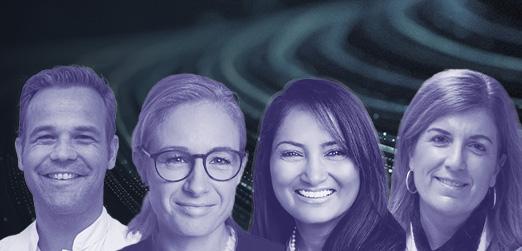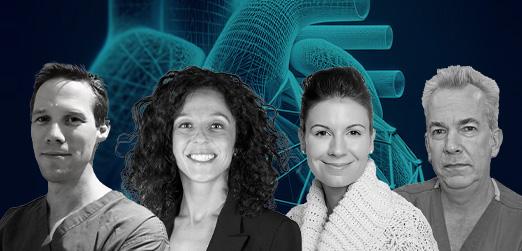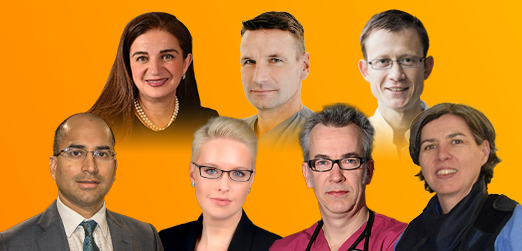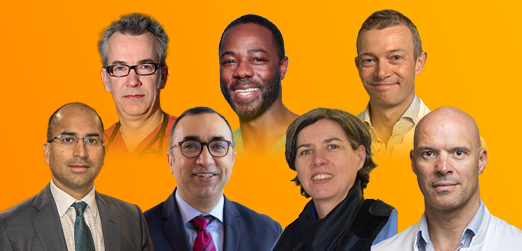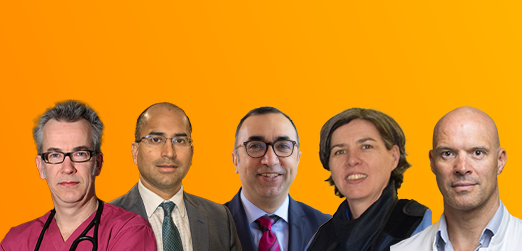- Home
- Transcatheter Interventions Online - Recent Trials & Future Technologies: Technologies and Controversies
Transcatheter Interventions Online - Recent Trials & Future Technologies: Technologies and Controversies
- Intervention
- MI/ACS
- Structural Heart Disease
Available Credit:
- 1.00
Course Published On:
Course Expiry Date:

Overview
In this session, 'Transcatheter Interventions Online 2020 - Recent Trials & Future Technologies: Technologies and Controversies' a leading faculty presents and discuss the latest in MCS in HRPCI, embolic protection in TAVI and non-hyperaemic angio-, OCT-, and MSCT-derived coronary physiology.
Transcatheter Interventions Online 2020 aims to educate interventionalists and allied healthcare professionals on the practical implications of the latest clinical data, device selection, and procedural strategies impacting optimum patient care. To further illustrate this, the event will feature a number of practical demonstrations in the form of live cases broadcast from cardiovascular centers of excellence globally, interspersed with presentations and debate sessions.
Support Statement
This programme is supported by unrestricted educational grants from the following companies. The scientific programme has not been influenced in any way by the sponsors.
- Abbott
- Abiomed
- Boston Scientific
- Edwards Lifesciences
- Medtronic
- Siemens Healthineers
Disclosure
In compliance with EBAC / EACCME guidelines, all speakers/chairpersons participating in this programme have disclosed or indicated potential conflicts of interest which might cause a bias in the presentations.
The Organising Committee/Course Director is responsible for ensuring that all potential conflicts of interest relevant to the event are declared to the audience prior to the CME activities.
Terms & Conditions
Radcliffe Education requires contributors to our CME programmes to disclose any relevant financial relationships that have occurred within the past 12 months that could create a conflict of interest. These will be identified in the faculty section if applicable.
This session ‘Transcatheter Interventions Online - Recent Trials & Future Technologies: Technologies and Controversies’ is accredited by the European Board for Accreditation in Cardiology (EBAC) for 1 hour of external CME credits.
Each participant should claim only those hours of credit that have actually been spent in the educational activity. EBAC works according to the quality standards of the European Accreditation Council for Continuing Medical Education (EACCME), which is an institution of the European Union of Medical Specialists (UEMS).
Through an agreement between the European Board for Accreditation in Cardiology and the American Medical Association, physicians may convert EBAC External CME credits to AMA PRA Category 1 Credits™. Information on the process to convert EBAC credit to AMA credit can be found on the AMA website.
Instructions to Participants
There is no fee for taking part in this online learning activity.
Activities are designed to be completed within 60 minutes and must be completed by the registered user. Physicians should only claim credits for time spent on the activity. To successfully earn credit, participants must complete the activity in full in the indicated time frame.
To complete the course and claim certification participants must:
- Read the course outline information supplied and complete pre-test questions if supplied prior to starting the activity. Users must read and study the activity in its entirety before completing the post-test questions.
- Your results will be automatically saved and if a pass score is achieved (where applicable), you may be eligible to claim credit for the activity and receive a certificate of completion.
Target Audience
- Cardiologists
- Interventionalists
- Surgeons who are involved and/or interested in transcatheter treatment strategies for coronary and structural heart disease
Learning Objectives
Upon completion of this activity, participants will be able to:
- Evaluate emerging clinical data related to interventional cardiology practice including for both devices and pharmacology
- Recognise the latest interventional approaches for SHD and Complex PCI available for the optimal management of CV patients
- Assess the merits of adopting emerging technologies within their practice
- Apply the practical guidance to maximise success of their interventional procedures within TAVR, Mitral & Tricuspid Valve Replacement and Complex PCIs
- Interact with opinion leaders in their profession
Module |
Title |
Duration |
Speakers |
|---|---|---|---|
| 1 | MCS in HRPCI – Changing perspectives | Holger Thiele (Heart Center Leipzig, Germany) | |
| 2 | Embolic protection in TAVI | David Hildick-Smith (Brighton and Sussex University Hospitals, Brighton, UK) | |
| 3 | Non-hyperemic angio, OCT- MSCT derived coronary physiology | Joost Daemen (Erasmus Medical Center, The Netherlands) |
MCS in HRPCI – Changing perspectives
Duration:
Embolic protection in TAVI
Duration:
Speakers: David Hildick-Smith (Brighton and Sussex University Hospitals, Brighton, UK)
Non-hyperemic angio, OCT- MSCT derived coronary physiology
Duration:
Speakers: Joost Daemen (Erasmus Medical Center, The Netherlands)
Chair
Panelist






